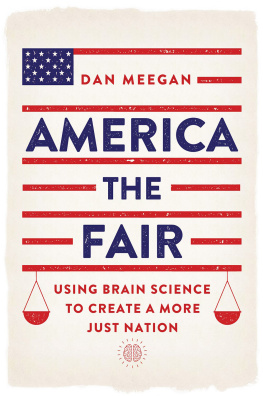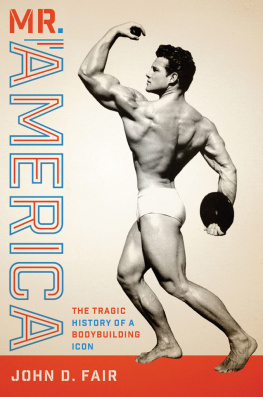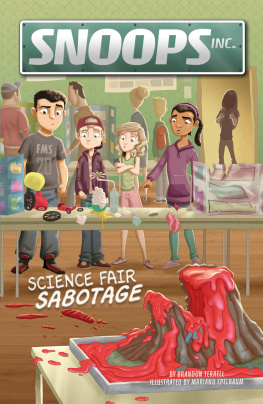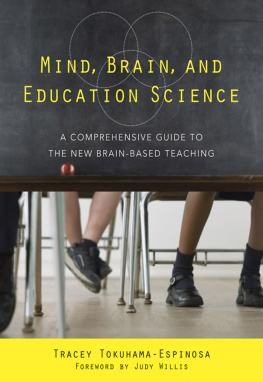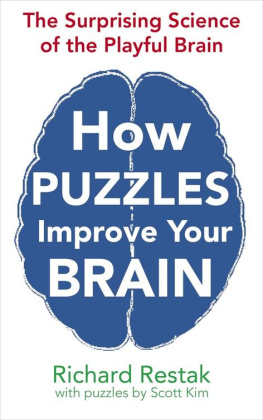INTRODUCTION
From Carnage to Canada
On January 20, 2017, Donald Trump took the oath of office as president of the United States, and on February 9 of the same year, I took the oath of citizenship as a citizen of Canada:
I swear (or affirm)
That I will be faithful
And bear true allegiance
To Her Majesty Queen Elizabeth the Second
Queen of Canada
Her Heirs and Successors
And that I will faithfully observe
The laws of Canada
And fulfil my duties
As a Canadian citizen.
As an American who learned that the most important moment in our nations history was when we declared our independence from the British But times had changedId changedand the state of US democracy made it easier than ever to officially cast my lot with a country where the politicians were enemies of each other rather than the citizens they claimed to represent, and where working people enjoyed the type of cradle-to-grave security about which many of my fellow Americans had forgotten to dream.
Its been a quarter century since I moved here, and I have only fading memories of the minor culture shock that I experienced at the time. But the Britishness of Ontarioas silly as it seems now in hindsightmemorably inspired a patriotic resistance in me. I hated the ubiquity of the queen, especially on the money in my pocket. I hated seeing the Union Jack on the provincial flag. And I hated when people said cheers instead of thank you. The most extreme manifestation of these feelings was a fantasy, never realized, in which I took my bike out for some destructive tailslides on the perfectly manicured grass of the local lawn bowling club. Having grown up with blue-collar bocceborrowed from the unpretentious Italian families in my community and played on the best available surfacelawn bowling seemed obnoxiously posh.
I was also wary of Canadas parliamentary system, which struck me as dangerously devoid of appropriate checks and balances between the executive and legislative branches. The prime minister was like the president, the Speaker of the House, and the Senate majority leader rolled into one powerful position. A new majority government could come into power and immediately begin implementing its promised agenda without hindrance, which was either totally awesome or totally horrifying, depending on ones ideological orientation.
Then again, I thought, could it be worse than a US government that seemed increasingly dysfunctional? In 1991, when I left, the United States was in the midst of a rightward shift that worried my liberal sensibilities. Reaganism was alive, well, and harmful, in my view, and I was troubled by how many Americans did not share my concern. Bill Clintons take on centrism, we now know, swept some of our nations problems under the rug, or, more specifically, sent them to prison and threw away the key. The Republican Party, led by Newt Gingrich, took to challenging its truce with the Democratic Party, a truce that, up to then, had allowed the types of ideological compromise on which progress is built.
In Canada I found that the natural order of things political was unthreatened by radicals. There was a proper left-center party (the Liberal Party) and a proper right-center party (now the Conservative Party). The Liberals and Conservatives traded power and were smart enough to recognize that the electorate would punish them for reaching too far from the center (or centre, to be precise). The gravitational pull of the center eased my mind about the lack of checks and balances in the parliamentary system. Also, the power afforded the ruling party in a majority government at least advantaged action over stagnationaction that was usually in the direction of progress, on issues of consensus. And God save her, the queen kept her nose out of Canadas business.
After many years here, I have learned enough about Canadians to be confident that rightward movements plaguing American progressfirst Reaganism and now Trumpismare unlikely to infect Canadian politics to the same degree. What is it about Canadians that makes them more resistant than Americans to such antiprogress? Outsiders, especially from the United States, assume that Canadians are more left leaning, on average, than Americans. Put another way, the ratio of liberals to conservatives is higher in Canada than in the United States. Although this is probably true, I suggest that there is much more to the story.
First, I should be clear on what I mean by liberal and conservative, and be clear that I am restricting their use to the economic domain. Liberals tend to be more sensitive to the suffering of others, in the sense that they want to alleviate the suffering first and ask questions later. Although conservatives are sensitive to suffering, their willingness to help might depend on the circumstances. For example, a conservative might ask whether the suffering is self-inflicted, in which case it might be best to let the sufferers learn from their mistakes.
When assessing blame, liberals tend to look for sources outside of the sufferer, such as societal forces beyond their control, whereas conservatives tend to demand personal responsibility. Liberals and conservatives thus respond very differently when presented, for example, with a person who cannot afford his next meal because he spent his money on drugs. Liberals want to feed the person and then offer him rehabilitation, whereas conservatives are loath to reward bad behavior.
At a societal level, liberalism and conservatism define ones comfort with redistribution, with liberals being uniquely reluctant to question the
There is another relevant difference between Canadians and Americans, captured by a joke told to me by a fellow expat soon after my arrival in Canada:
Two friends are sitting beside a pool at a tropical resort. One turns to the other and says, There are both Americans and Canadians in the poolIll show you how to tell them apart. He walks to the edge of the pool and, with authority, announces: Everybody out of the pool! About half of the people get out of the pool, and he turns to his friend and says, These are the Canadians. The Americans are those still in the pool looking at me with expressions that say, Give me a good bleeping reason to get out of the bleeping pool.
At the time, I enjoyed the joke as intendedas a negative commentary on Canadian trustfulness and a positive commentary on American shrewdness. Over time, though, I recognized that this aspect of being Canadian, even if an overstated generalization, was something to be admired, something that helped make Canada a civil and lawful society, something that should define and inspire my assimilation. Years later, I met a newly arrived Spaniard who had just attended a Toronto Blue Jays game at which spectators received a souvenir miniature bat; it would be hard to overstate his disbelief that weapons were handed out at a stadium full of sports fans. I laughed knowingly, then patted myself on the back for choosing to raise my family here.

